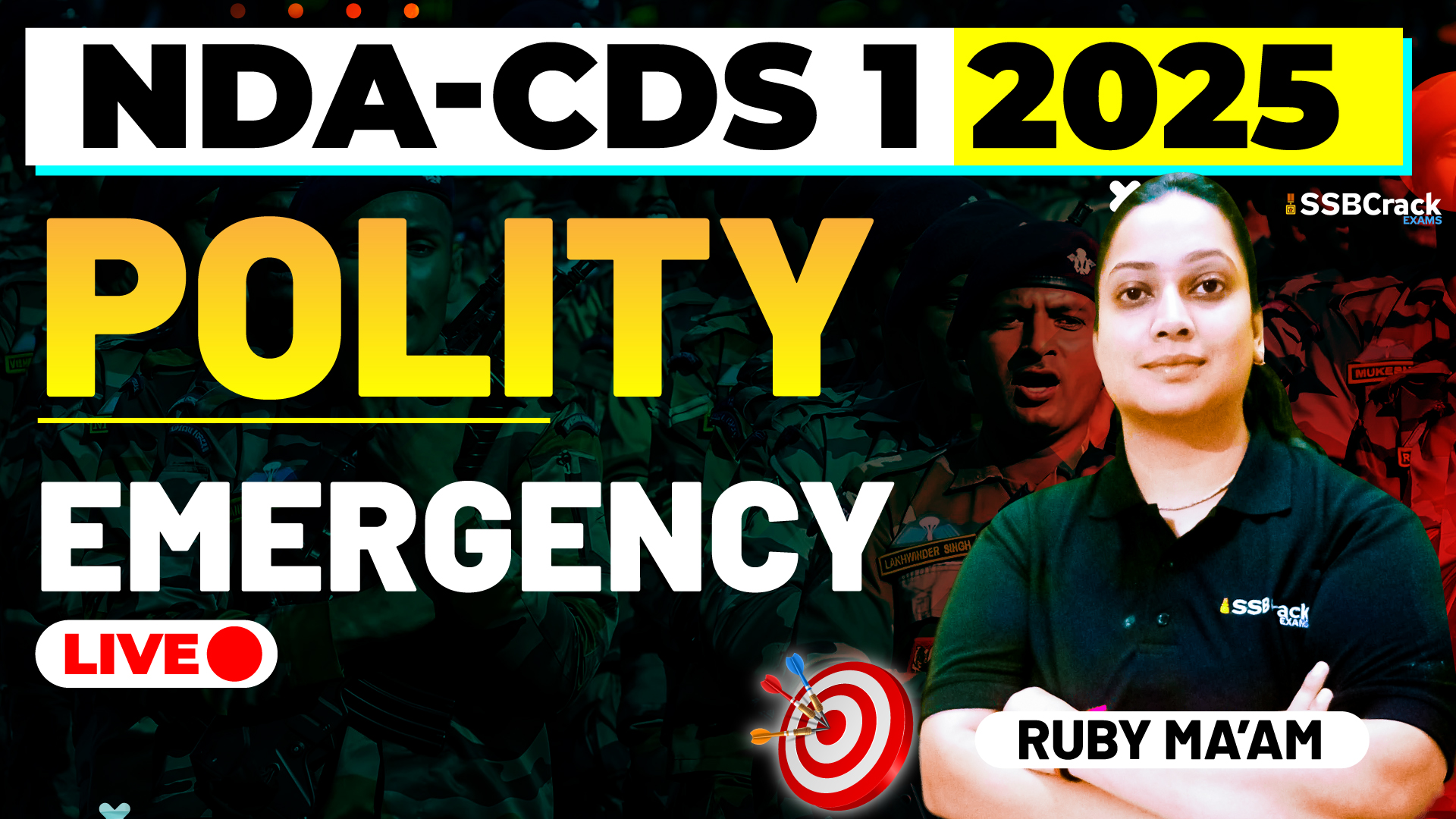When preparing for competitive exams like NDA and CDS, understanding key constitutional concepts in Indian Polity is crucial. Among these topics, “Emergency Provisions” holds unique significance, both in terms of theoretical knowledge and its potential impact on practical, national scenarios. This topic often appears in the General Knowledge and Current Affairs sections of these exams and could even influence essay or interview questions in SSB (Services Selection Board) rounds. Let’s break down why a deep understanding of the “Emergency” provisions in the Indian Constitution is essential for NDA/CDS aspirants.
1. Conceptual Understanding and Constitutional Foundation
Emergency provisions are enshrined in Articles 352-360 of the Indian Constitution. These provisions empower the Central Government to take over greater control in exceptional circumstances to protect national integrity and public safety. There are three types of emergencies:
- National Emergency (Article 352): Invoked in cases of war, external aggression, or armed rebellion.
- President’s Rule (Article 356): Applied when there’s a failure of constitutional machinery in a state.
- Financial Emergency (Article 360): Used if the country’s financial stability is threatened.
For an NDA/CDS aspirant, these constitutional articles are critical as they outline the specific conditions and procedures under which these extraordinary powers can be exercised.
2. Historical Insights and Real-World Examples
Emergency provisions have been invoked in India on a few pivotal occasions:
- 1962 during the Sino-Indian War,
- 1971 during the Indo-Pakistan War,
- 1975-1977 when a controversial Internal Emergency was declared by Prime Minister Indira Gandhi.
Each of these emergencies has had lasting political and social implications. Understanding these events enables aspirants to appreciate how constitutional provisions translate into real-world scenarios, especially for future military officers who must be aware of the nation’s governance and political climate.
3. Importance in Exams and SSB Interviews
Emergency provisions often appear in objective questions, multiple-choice formats, and current affairs sections of NDA/CDS exams. Beyond exams, SSB interviews test a candidate’s depth of knowledge and opinions on national matters. Interviewers may explore your understanding of emergency powers, ask for your opinion on its implications, or pose hypothetical situations regarding national security to assess your problem-solving approach and political awareness.
4. Understanding Constitutional Rights and Limitations
During emergencies, certain fundamental rights can be suspended. For instance, Article 19 is automatically suspended during a National Emergency. However, Article 20 and Article 21 cannot be suspended, even during such times. This demonstrates the balance the Constitution maintains between individual rights and national security, a principle every defense aspirant should internalize.
5. Role in National Defense and Military Leadership
The military’s role becomes more prominent during times of national crisis. Knowledge of the Emergency provisions equips future officers with a better understanding of how defense, internal security, and governance interlink during times of crisis.
6. Significance in Current Affairs
An in-depth understanding of emergency provisions is essential to comprehend modern political discussions, especially those around national security, political autonomy, and federalism. The Indian government’s response to crises, from terrorism to natural disasters, often includes strategies that rely on these constitutional tools.
Conclusion
For NDA and CDS aspirants, the topic of “Emergency” in Polity goes beyond rote learning. It is a comprehensive blend of constitutional law, historical context, current affairs, and strategic awareness. It is foundational for understanding India’s governance structure, especially during crises, making it a crucial topic for anyone aiming to serve the nation. By mastering it, candidates not only improve their chances in exams but also gain insights essential for future leadership roles in the armed forces.







